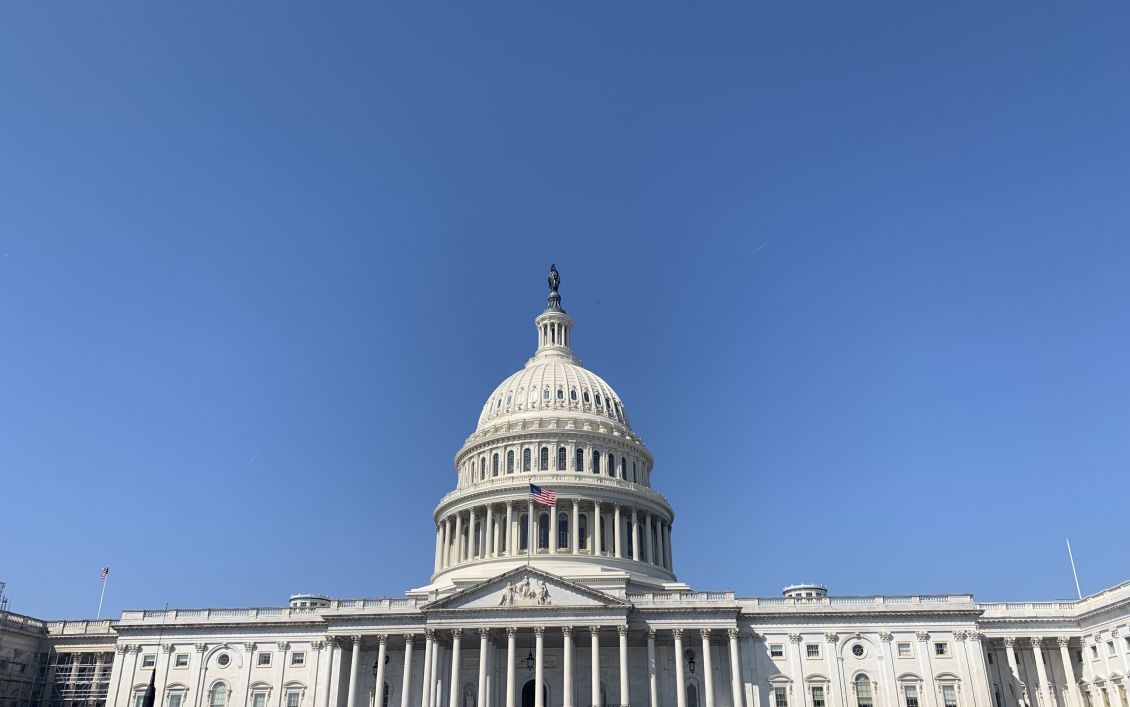After weeks of negotiations between Congressional leadership and the White House, President Biden signed legislation June 4 to prevent a government default. This debt limit bill, the Fiscal Responsibility Act of 2023 (H.R.3746), establishes budget caps on discretionary spending for Fiscal Years 24 and 25, rescinds funding from COVID-19 relief legislation and the Inflation Reduction Act (IRA), and suspends the debt limit until January 1, 2025, among many other provisions.
Enterprise applauds Congress and the Administration for coming to an agreement to avoid a catastrophic default while also protecting most housing and community development funds from rescissions. However, the budget caps included in the legislation pose serious threats to affordable housing and community development funding over the next couple of years.
While the enacted legislation is broad, the overview below focuses primarily on the sections that impact housing and community development.
Debt Limit Suspension and Appropriations Spending Caps
The bill suspends the debt limit until January 1, 2025. The bill further establishes caps on spending for FY 24 and FY 25. For FY 24, the total spending is set to $1.59 trillion with $886 billion for defense spending and $703 billion for non-defense discretionary spending programs. FY 25 spending levels will be capped at a 1% increase above FY 24 levels, $895 billion for defense and $710 billion for nondefense.
The bill also establishes spending limits for FY 26 – FY 29 and will include a similar approach of a 1% annual growth, while adjusting for inflation for the Veteran Affairs Health program. However, only FY 24 and FY 25 caps will be mandated as the Act provides Congressional authority to waive the limits for FY 26 - FY 29. Caps established for FY 24 and FY 25 are the only ones that are binding.
There is an additional provision in the debt limit bill that states that if all 12 appropriations bills are not enacted by January 1 of the following year, discretionary spending will temporarily operate on a 1% cut of the current levels. If this is triggered, FY 24 will be operated at 1% less than FY 23 levels. The last time appropriations bills were passed after January 1st was as recent as FY 22. The FY 23 appropriations bill, the Consolidated Appropriations Act, 2023 was enacted on December 29, 2022.
At face value, these negotiated spending caps are problematic. Earlier this year, it was reported that the Transportation and Housing and Urban Development (THUD) Appropriations subcommittee, the committee which funds HUD programs and therefore a majority of the key housing and community development programs, are beginning from a $13 billion deficit due to lower revenue from mortgages and higher renewal costs for rental assistance programs. This starting deficit – along with the strict, relatively flat budget caps – will require tough decisions from Appropriators, especially from the THUD subcommittee which has to prioritize the funding of renewal programs each year.
Rescissions
COVID-19 Legislation
The bill rescinds $28 billion in unobligated funds from the following COVID-19 relief bills:
- American Rescue Plan Act,
- Coronavirus Preparedness and Response Supplemental Appropriation Act,
- Families First Coronavirus Response Act,
- CARES Act,
- Paycheck Protection Program and Health Care Enhancement Act,
- and the FY 21 Consolidated Appropriations Act – supplemental appropriations for COVID-19 response.
Obligated funding for many housing and community development programs remained untouched. Programs such as the Emergency Rental Assistance, Emergency Housing Vouchers, Indian Health Service, and State and Local Recovery Funds were protected from the bill according to a document shared by the Administration.
Unfortunately, there were some housing programs that were impacted, including:
- HUD: Project-Based Rental Assistance, Housing for the Elderly (Section 202), Native American Programs, and Fair Housing Activities
- Small Business Administration: Disaster Loan Program Account
IRA
The debt limit deal also includes a $21.4 billion rescission in Internal Revenue Service (IRS) funding out of the $80 billion originally allocated in the IRA. The bill will rescind $1.4 billion immediately and the additional $20 billion will be reallocated during FY 24 and FY 25.
The bill does not include any changes to the IRA's climate and clean energy provisions. While the IRA doesn’t focus on housing, it does include a number of housing-related provisions that, when taken together, can help make homes and communities more green, affordable, and resilient. Among these programs, HUD’s Green and Resilient Retrofit program and the Department of Energy’s rebate programs remained untouched, as well as the Environmental Protection Agency’s Greenhouse Gas Reduction Fund which was most at risk of rescissions. The various energy tax credits included in the IRA that aim to increase energy efficiency and renewable energy projects are also safe, although the cuts in the IRS budget could hinder the agency’s capacity to obligate funds and implement programs efficiently and effectively. Enterprise and our green and resilient housing partners advocated strongly for the protection of these key programs and are pleased to see they were not impacted by this legislation.
Other Provisions
The bill also will require that any projected increase in mandatory spending due to administrative actions would require an offset by an equivalent amount of direct spending cuts or revenue increases. This mechanism is commonly referred to as “pay-as-you-go” or PAYGO. The debt limit bill would also terminate the suspension of payments on federal student loans, ending the pause that first began in the pandemic.
Another section of the bill establishes additional work requirements and provisions for the Temporary Assistance to Needy Families (TANF) and the Supplemental Nutrition Assistance Program (SNAP), and includes energy permitting reforms to the National Environmental Policy Act.
While we are disappointed to see that the debt limit bill will constrain discretionary, non-defense funding significantly—Enterprise will continue our advocacy with both House and Senate Appropriators and other Members of Congress to ensure that any future appropriations bill or funding package contains strong funding levels for housing and community development. Learn more of Enterprise’s Policy Priorities for the 118th Congress here. To stay up to date on the appropriations process and other affordable housing and community development policy, subscribe to our daily Today in Housing newsletter and bi-weekly Capitol Express newsletter.


